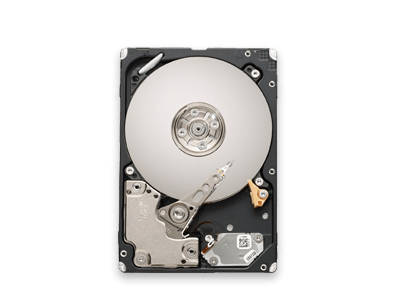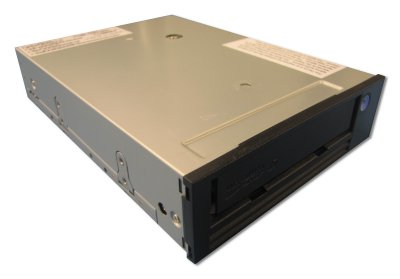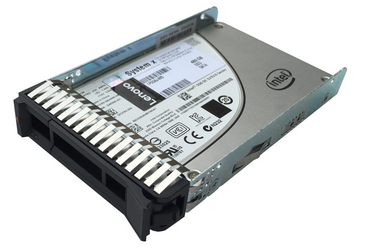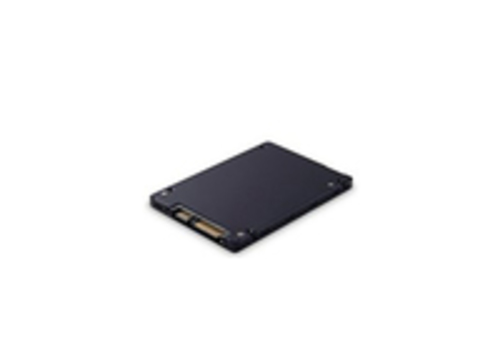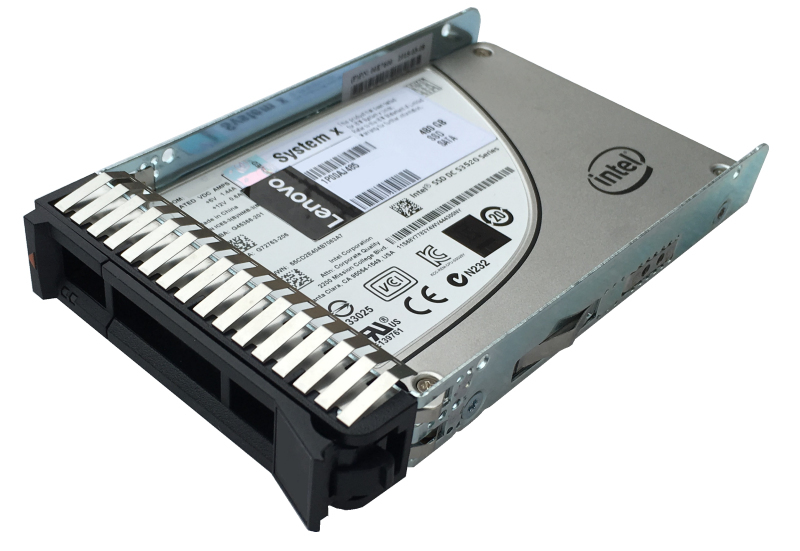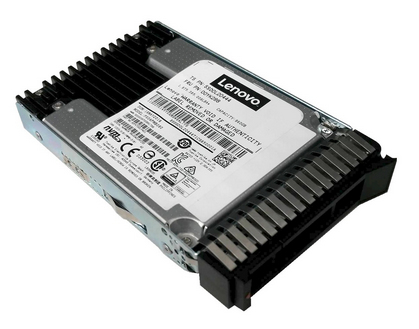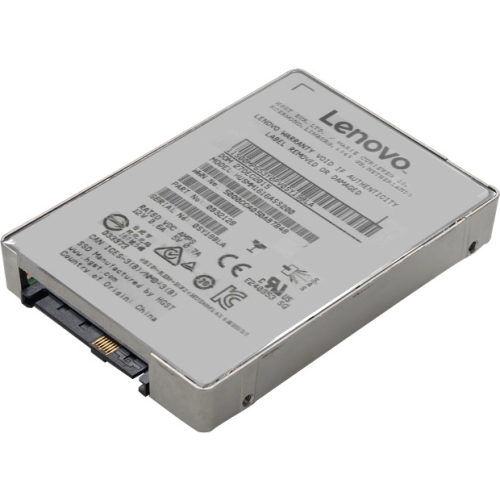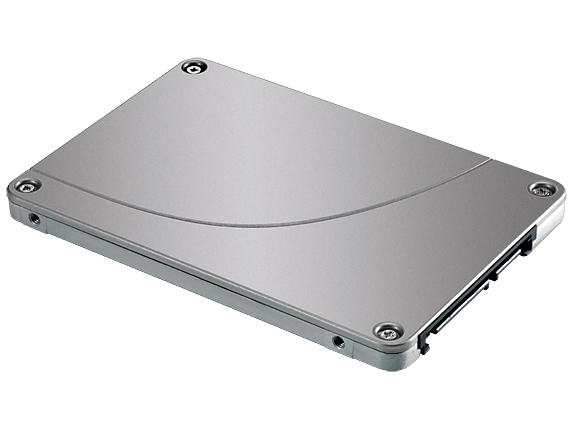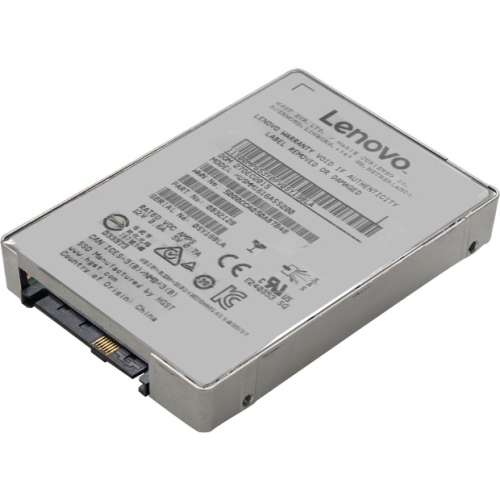Lenovo 4XB7A08540 Lenovo 4XB7A08540 internal hard drive 3.5"" 10 TB Serial ATA III
Lowest-cost storage solution for high-capacity enterprise-class servers.
Lenovo 7T27A01502 Lenovo 7T27A01502 backup storage device Storage drive Tape Cartridge LTO
The Half-High LTO Generation 6 (LTO6) SAS Tape Drive is a high-performance, high-capacity data-storage device that is designed to back up and restore open-systems applications. It offers native storage capacity of 2.5 TB per cartridge (6.2 TB at 2.5:1 compression) and a maximum native data transfer rate of up to 160 Mbps (400 Mbps compressed). This enterprise data protection offering has a 5.25” half-height internal form factor for integration into System x tower servers. This product guide provides essential presales information to understand the LTO6 SAS tape drive offerings and their key features, specifications, and compatibility. This guide is intended for technical specialists, sales specialists, sales engineers, IT architects, and other IT professionals who want to learn more about LTO6 SAS tape drive offerings and consider their use in IT solutions.
Lenovo 7N47A00105 Lenovo 7N47A00105 internal solid state drive 3.5"" 240 GB Serial ATA III
The S3520 Enterprise Entry SATA solid-state drives (SSDs) for Lenovo servers use Intel 3D NAND flash memory technology with a SATA 6Gbps interface to provide an affordable solution with industry leading performance. Compared with the Intel S3510 series, these new drives offer significantly improved endurance and lower power consumption. The S3520 SSDs are optimized for read-intensive applications such as boot, web servers, lower data rate operational databases and analytics.
Lenovo 7N47A00100 Lenovo 7N47A00100 internal solid state drive 2.5"" 480 GB Serial ATA III
The S3520 Enterprise Entry SATA solid-state drives (SSDs) for Lenovo servers use Intel 3D NAND flash memory technology with a SATA 6Gbps interface to provide an affordable solution with industry leading performance. Compared with the Intel S3510 series, these new drives offer significantly improved endurance and lower power consumption. The S3520 SSDs are optimized for read-intensive applications such as boot, web servers, lower data rate operational databases and analytics.
Lenovo 7XA7A01204 Lenovo 7XA7A01204 optical disc drive DVD-ROM Black
The half-high optical drives are attached via a SATA port on the system board
Lenovo 7N47A00099 Lenovo 7N47A00099 internal solid state drive 2.5"" 240 GB Serial ATA III
The S3520 Enterprise Entry SATA solid-state drives (SSDs) for Lenovo servers use Intel 3D NAND flash memory technology with a SATA 6Gbps interface to provide an affordable solution with industry leading performance.This product guide provides essential presales information to understand the S3520 SSD offerings, their key features and specifications, components and options, and configuration guidelines. This guide is intended for technical specialists, sales specialists, sales engineers, IT architects, and other IT professionals who want to learn more about S3520 SSDs and consider their use in IT solutions.The S3520 Enterprise Entry SATA solid-state drives (SSDs) for Lenovo servers use Intel 3D NAND flash memory technology with a SATA 6Gbps interface to provide an affordable solution with industry leading performance. Compared with the Intel S3510 series, these new drives offer significantly improved endurance and lower power consumption. The S3520 SSDs are optimized for read-intensive applications such as boot, web servers, lower data rate operational databases and analytics.
Lenovo 7N47A00096 Lenovo PX04PMB 2.5"" 1.92 TB PCI Express 3.0 MLC NVMe
Non-Volatile Memory Express (NVMe) is new PCIe 3.0 high performance SSD technology that provides high I/O throughput and low latency. NVMe interfaces remove SAS/SATA bottlenecks and unleash all of the capabilities of contemporary NAND flash memory. Each NVMe PCI SSD has direct PCIe 3.0 x4 connection, which provides at least 2x more bandwidth and 2x less latency than SATA/SAS-based SSD solutions. NVMe drives are also optimized for heavy multi-threaded workloads by using internal parallelism and many other improvements, such as enlarged I/O queues.The Lenovo NVMe Enterprise Mainstream PCIe SSD have the following features: 2.5-inch drive (U.2) or 3.5-inch drive bay form factor Based on the Toshiba PX04P drives, PX04PMBxxx 19nm MLC NAND (128 Gb/die) 3 drive-write-per-day (DWPD) SSD for mixed read-write workloads Direct PCIe 3.0 x4 connection for each NVMe drive, resulting in up to 4 GBps overall throughput. Full Power-Loss-Protection and End-to-End Data Protection Low power consumption (maximum 18.5 W)Enterprise Mainstream SSDs and Enterprise Performance SSDs have similar read and write IOPS performance, but the key difference between them is their endurance (or lifetime) (that is, how long they can perform write operations because SSDs have a finite number of program/erase (P/E) cycles). Enterprise Mainstream SSDs have a better cost/IOPS ratio but lower endurance compared to Enterprise Performance SSDs. SSD write endurance is typically measured by the number of program/erase (P/E) cycles that the drive incurs over its lifetime, listed as the total bytes of written data (TBW) in the device specification.The TBW value assigned to a solid-state device is the total bytes of written data (based on the number of P/E cycles) that a drive can be guaranteed to complete (% of remaining P/E cycles = % of remaining TBW). Reaching this limit does not cause the drive to immediately fail. It simply denotes the maximum number of writes that can be guaranteed. A solid-state device will not fail upon reaching the specified TBW. At some point based on manufacturing variance margin, after surpassing the TBW value, the drive will reach the end-of-life point, at which the drive will go into a read-only mode.Because of such behavior by Enterprise Mainstream solid-state drives, careful planning must be done to use them only in mixed read-write environments to ensure that the TBW of the drive will not be exceeded before the required life expectancy.For example, the 1.92TB NVMe 2.5"" Enterprise Mainstream PCIe SSD has an endurance of 10,412 TB of total bytes written (TBW). This means that for full operation over five years, write workload must be limited to no more than 5,705 GB of writes per day, which is equivalent to 3.0 full drive writes per day (DWPD). For the device to last three years, the drive write workload must be limited to no more than 9,509 GB of writes per day, which is equivalent to 5.0 full drive writes per day.
Lenovo 7SD7A05753 Lenovo 7SD7A05753 internal solid state drive 2.5"" 800 GB SAS
The 12 Gb SAS HUSMM32 Enterprise Performance FIPS SED solid-state drives (SSDs) are high-performance self-encrypting drives (SEDs) that adhere to the Federal Information Processing Standard 140-2 (FIPS 140-2) cryptographic standard. These drives are available in either 2.5-inch or 3.5-inch drive form factor for System x servers.Self-encrypting drives provide the ultimate in security for data-at-rest and help reduce IT drive retirement costs in the data center. When combined with the compatible RAID controllers, SED drives in Lenovo servers deliver a cost-effective, secure solution for businesses of all sizes. Self-encrypting drives are also an excellent choice if you need to comply with government or industry rules regarding data privacy and encryption.The 12 Gb SAS Enterprise Performance FIPS SED SSD is shown in the following figure.
Lenovo 7SD7A05732 Lenovo 7SD7A05732 internal solid state drive 2.5"" 240 GB Serial ATA III
The Intel S4500 Entry SATA solid-state drives (SSDs) for Lenovo servers use Intel 3D NAND TLC Flash Memory technology with a 6Gbps SATA interface to provide an affordable solution with industry leading performance.This product guide provides essential presales information to understand the S4500 SSD offerings, their key features and specifications, components and options, and configuration guidelines. This guide is intended for technical specialists, sales specialists, sales engineers, IT architects, and other IT professionals who want to learn more about S4500 SSDs and consider their use in IT solutions.
Lenovo 7SD7A05752 Lenovo 7SD7A05752 internal solid state drive 2.5"" 1.6 TB SAS
The 12 Gb SAS HUSMM32 Enterprise Performance FIPS SED solid-state drives (SSDs) are high-performance self-encrypting drives (SEDs) that adhere to the Federal Information Processing Standard 140-2 (FIPS 140-2) cryptographic standard. These drives are available in either 2.5-inch or 3.5-inch drive form factor for System x servers.Self-encrypting drives provide the ultimate in security for data-at-rest and help reduce IT drive retirement costs in the data center. When combined with the compatible RAID controllers, SED drives in Lenovo servers deliver a cost-effective, secure solution for businesses of all sizes. Self-encrypting drives are also an excellent choice if you need to comply with government or industry rules regarding data privacy and encryption.The 12 Gb SAS Enterprise Performance FIPS SED SSD is shown in the following figure.
Get a Quote
Item(s) added to cart
Netgear GS105E-200NAS ProSafe Plus Switch, 5-Port Gigabit Ethernet - 5 Ports - 2 Layer Supported - Wall Mountable - Lifetime Limited Warranty-None Listed Compliance
MFR: Netgear, Inc
Qty: 1
Part #: GS105NA

